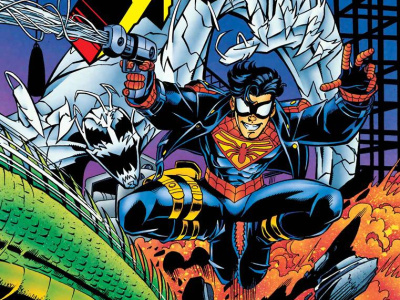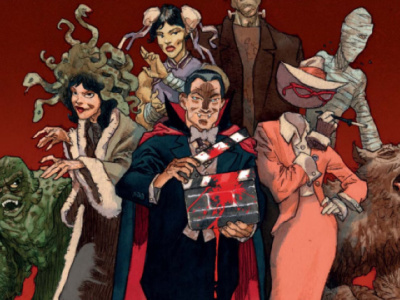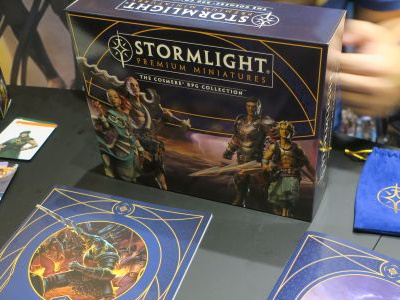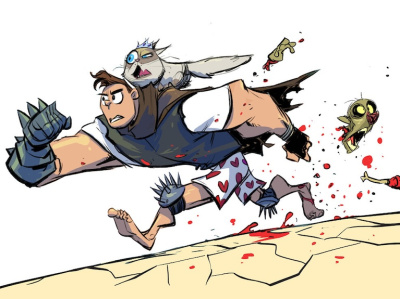
Wizards of the Coast made two dramatic moves this week, filing lawsuits against eight defendants accusing them of copyright infringement of its Dungeons and Dragons Players Handbook 2 (see “Wizards Sues Eight”), and ending all sales of PDF versions of its products (see “WotC Ends PDF Download Sales”). ICv2 reached out to Wizards CEO Greg Leeds with some key questions on its digital strategy.
Piracy has been part of the landscape for as long as there’s been an Internet. Why were Wizards’ actions to stop PDF sales taken now, rather than at any time in the past?
First let me say that we did not enter into this decision lightly. The piracy was increasing at an alarming rate compared to what we’ve seen in the past and we felt that it could have a negative impact on the hobby industry.
By banning PDF sales, Wizards of the Coast now has no legal way for your customers to buy your content digitally. That seems to punish those that were paying for your digital content, while doing little to stop pirates, who can still scan your books or fileshare digital copies already out there, creating a net increase in piracy. What’s your response to that line of reasoning?
We understand that our actions will not eliminate piracy all together, but we don’t want to make it easy, either. In order to better support and grow our hobby industry, we need a strong retail base. We understand that our fans have a use for PDFs, and we are actively exploring other options for digital distribution. In the mean time, we needed to protect the hobby industry.
In general, companies that sell music and video have been expanding, rather than eliminating, legal ways of selling their content. Why is Wizards going in a direction different from the one that seems to have become conventional wisdom in other media?
We are not going in a different direction – Wizards fundamentally agrees with expansion, and we’re participating in that through our Website and D&D Insider. On the novels side of our business, we have recently released titles through Kindle and Sony’s E-Reader, and will continue to add to that in the coming months. Without citing specific numbers, our content is distributed to hundreds of thousands of people, and our PDF business was small in comparison.
Some are speculating that underperformance of 4E vs. expectations has Wizards of the Coast looking for reasons, and that led to attacking pirates and banning PDFs. Since you don’t report specific line sales, we don’t know whether either perception (performance of 4E or connection to PDF policy) is correct. Can you address these perceptions?
We have done three reprints of the 4th Edition Player’s Handbook, and Player’s Handbook 2 has just gone back to press for a second printing. PH2 debuted at #4 on the Wall Street Journal’s best-sellers list, and #28 on USA Today’s list. By any measure, 4th Edition has been a great success and will continue to attract new players.
Another theory out there is that Wizards plans to sell PDFs itself, and wanted to get the entire margin, rather than sharing it with third party Websites. What’s your response to that theory?
Simply put the theory is incorrect. We don’t plan to sell PDFs at all, and are looking into other options for the digital distribution of our content.
Others think that you’re planning on making access to your digital content by subscription, rather than DTO (download-to-own). Does Wizards plan to make its D&D products available digitally as part of DnDI?
Much of our content is already available on D&D Insider through the Character Builder and Compendium. We are still looking into other options for the digital distribution of the rest of our content.
Last, if Wizards is planning to use another method of making its content available digitally (other than PDFs), why end PDFs before the alternative is ready? Doesn’t that create an environment, at least temporarily, that encourages those that were buying your digital content legally to get pirated material instead?
The scope of the piracy was such that we had to stop our digital distribution all together while we looked for another option. Within hours of its release, Player’s Handbook 2 had been illegally downloaded thousands of times. We can conservatively estimate that for every one book downloaded legally, ten were downloaded illicitly. We were concerned that this activity might start to affect brick and mortar stores, and Wizards couldn’t stand by and let that happen when there are other options for acquiring our products.







